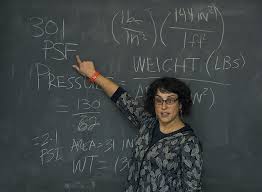Use a Reverse Mortgage to Prevent Foreclosure and to Leave Your Home to the Kids Free and Clear

According to a report published by the Consumer Financial Protection Bureau (CFPB) in May of 2014, the “Great Recession,” as many are now calling it (and I think is asinine), has “resulted in a number of economic challenges for seniors, including increased mortgage debt, less affordable housing and a greater risk of foreclosure.”
According to the report, “the percentage of seniors carrying mortgage debt increased from 22% in 2001 to 30% in 2011, and during that same time period the rate more than doubled, from 8.4% to 21.2%, for those in the 75 plus age group.”
The CFPB also reported that on a per senior basis, “the average amount of mortgage debt increased by about 82%,” and that, “many older Americans have accrued less home equity than their age group did a decade ago.” The CFPB’s report concludes that for seniors, “the result is less financial security and greater financial risk.”
Home equity among seniors, however, has proven to be a double edged sword.
On one hand, many seniors saw their plans for retirement derailed when the amount of equity they had in their homes declined, but one the other hand, having equity has also been a significant problem for seniors who found themselves at risk of foreclosure and in need of a loan modification, because as so many have learned the hard way… home equity and loan modifications do not mix.
It may seem counter-intuitive, but the government’s foreclosure program discriminates against homeowners with equity, because qualifying for a loan modification means passing what’s called “the NPV test,” which stands for Net Present Value, and the more equity you have the less likely it is that you’ll pass that all-important test.
The math gets complicated, but basically the NPV test determines whether the owner of your loan would fare better by modifying it, or by doing nothing and presumably foreclosing and re-selling the property. And if you have a significant amount of equity in your home, as many seniors did and still do, it’s almost a certainty that the NPV test will show that the investor who owns your loan would come out ahead financially by selling your property as compared with modifying your loan.
That’s why I wasn’t at all surprised that according to the CFPB’s report…
“The most common types of mortgage complaints from older consumers (46 percent) are about problems they face when they are unable to make payments (such as issues relating to loan modifications, collections, or foreclosures).”
“Many older consumers complain that their mortgage lender or servicer refused to allow them to modify their loans. Some who received loan modification offers were unable to afford the new terms, and some who obtained a modification continued to struggle to make ends meet. Finally, consumers complain that after completing a trial period plan, their loan servicer refused to allow them to enter a final permanent loan modification.”
Berbeth Foster, an attorney who has worked in the Senior Citizen Law Project of Coast to Coast Legal Aid of South Florida since 2010 was quoted in a September 2012 article in the Miami Herald, saying, “I have seen a consistently high rate of serious mortgage delinquency and foreclosure filings for clients 60 and older.”
It’s not hard to figure out why. Overall, declining incomes and increasing costs and expenses cause the problems faced by seniors. It’s not like it’s easy for older Americans to get a better job or work longer hours in order to cope with increasing or unplanned expenses. Foreclosures also become more likely after someone completely retires, job loss, or even after the death of a spouse… anything that can cause a senior’s income to decline significantly.
The CFPB report also repeated the findings from the AARP study from 2011, which showed that delinquency and foreclosure rates among seniors increased five-fold after the financial crisis.
As the CFPB’s report says in closing…
“Making mortgage payments when experiencing a financial shock leads to financial insecurity for many older homeowners. Older homeowners in retirement who live on reduced retirement income are particularly vulnerable to such financial distress.
Said Richard Cordray, director of the CFPB, in a recent release…
“A home can be a place of security for older Americans in their retirement years – a roof over their heads, as well as a valuable asset. But as more seniors carry significant mortgages into retirement, they put themselves at risk of losing their nest eggs and their homes.”
A report published by the AARP in 2011, made a point of stating that, “… programs that focus on the unique needs of older Americans are needed,” but ALMOST FOUR YEARS after that report was published, I can’t think of a single program that’s been specifically designed to help older Americans avoid foreclosure.

Except for one… the Home Equity Conversion Mortgage (HECM)
Yes, I’m talking about the HECM reverse mortgage program, but probably not the way you’re thinking about it, so just hang on a minute before you jump to conclusions.
I’m going to describe how to use a Home Equity Conversion Mortgage to protect your home from foreclosure, but still pay it off so you can leave it to your kids free and clear, if that’s what you want to do.
First of all, the HECM program was created by Congress, is regulated by the U.S. Department of Housing & Urban Development (HUD), and is insured by the Federal Housing Administration, better known as the FHA. The federal government created the HECM program to help older Americans address challenges caused by “reduced income and increasing costs,” which is exactly why seniors end up in foreclosure.
How a reverse mortgage can essentially eliminate your risk of being in foreclosure…
Let’s say you’re 65 years old, and your mortgage started out to be $475,000. So, you’ve been paying for roughly 20 years now and your balance is down to approximately $250,000. Your mortgage payments are $2,500 a month. You’re still working, so you’re having no trouble making those payments.
So, why would you switch to a reverse mortgage? Because you could very easily find yourself at risk of foreclosure with the mortgage you have now, but with a reverse mortgage you can’t be foreclosed on for missing mortgage payments. (You still have to pay your property taxes and insurance, which you obviously can, or you wouldn’t be able to pay your mortgage payment.

How? It’s simple, unfortunately. What happens is… something happens.
Something happens that prevents you from working as long as you thought you’d be able to work… or your spouse loses his or her job unexpectedly… the job no one thought he or she could ever lose… or God forbid you become ill or injured… cancer, heart attack, a stroke… those things are never any fun to have thrown at you, but things like that can be especially difficult to recover from at 70 or older.
Maybe it’s the kids that run into trouble and need help. Or the economy goes into another recession. If nothing bad has ever happened to you, I’m certainly glad, but we all know that there’s just no telling when some life event will show up and throw you off the horse you’ve been riding.
When seniors end up in foreclosure, nine times out of ten it’s a medical issue or unanticipated loss of a job that reduced their income and started their downward spiral. It wasn’t expected, it just happened. The thing about being older is that often times we can’t just work harder to make up for financial losses.
All of a sudden, the home they thought they’d live in forever is something they can no longer afford. How did this happen? How did it happen so fast? I hear these sorts of things all the time. The fact is, no one who gets in trouble with their mortgage, especially seniors, thought this would ever happen to them.
For some, refinancing might help, but refinancing today isn’t anything like it was before the Great Recession. There are strict income and credit score requirements and rules about one’s “ability to repay.” And there aren’t Home Equity Lines of Credit (HELOCs) like there were a few years ago either.
When it comes to HELOCs, most lenders today require that borrowers maintain 20% of their equity after taking the HELOC into account. So, if for example, your home is worth $200,000, and you owe $140,000 on your first mortgage, you’d have 30% equity, or $60,000. But if the lender required you to retain 20% of that equity, your HELOC would only allow you to borrow a maximum of $20,000, and many lenders won’t extend a HELOC with a limit of less than $10,000.
It’s also important to realize that that lenders can freeze or reduce your line of credit if your home drops in value or your financial situation changes so that credit may not be available when you need it most.
There’s no question about it… it’s a whole new world of mortgage lending out there, and chances are, it’s nothing like you remember it.
Today, if you wait until you need the money because your income has dropped, chances are the only loan you’re going to qualify for is a hard money loan, with terrible terms, that will only push you that much closer to foreclosure. Or, you can sell the home… which again, is fine if that’s what you want to do, but is often the last thing most seniors wanted to do during their retirement years.

What if you had refinanced to a Home Equity Conversion Mortgage, but kept making your mortgage payments?
To begin with, a Home Equity Conversion Mortgage or HECM is absolutely the most flexible consumer loan on the planet.
With a HECM, you can chose to make interest only payments… you can choose to make principal and interest payments… you can create your own balloon payment and decide when it’s due… or you can make no payments whenever you feel like making no payments. It’s totally up to you.
In the past, most seniors used HECMs because they needed to access their equity to create an income stream to supplement their Social Security income that was falling short when it came to covering their monthly bills. But, that’s not the only way you can use a HECM to make your life better and more financially secure.
Remember, before the Great Recession, almost no one was ever concerned about foreclosure, so almost no one was worried about protecting their home from it.
Back then, if you ran into trouble, you could practically run out at lunchtime and get a Home Equity Line of Credit regardless of your income… but that’s not true anymore. Back then you could always take out a second mortgage to help you get through the bumps in the road regardless of your income… but that’s also not true anymore.
Today, to qualify for any traditional loan secured by your home’s equity you need income, which is the one thing seniors generally find is in short supply when things take a turn for the worse.
So, what if you switched your traditional mortgage to a Home Equity Conversion Mortgage and kept making your payments… but instead of making them to the bank as you would if you kept your traditional mortgage, you started making them… to you?

Okay, so let’s look at an example and do the math…
Your payments are $2500 a month… your balance is $250,000. But now instead of making those payments to your bank, you make them to your own account, which let’s say is invested in the S&P 500 Index Fund. Where are you likely to come out after 10 years?
Let’s take a very conservative estimate of the S&P over ten years, and say it will return an average of 6% a year. So… the question is… where might you be financially after ten years?
- $2500 a month for 10 years compounding at 6% with no withdrawals = $411,072
- The HECM mortgage starting balance of $271,000, making no payments for 10 years at current rates is forecasted = $386,757
As you can see in the simplified example above, by paying yourself for that 10-year period, you could come out ahead. In this example, at the end of 10 years, you could pay off your reverse mortgage, and you’d still have about $25,000 left over to cover mortgage origination costs or whatever.
However, that’s not really the point. All I’m trying to illustrate is that it’s close either way. But the much more important point is that by using the HECM mortgage instead of a traditional mortgage, during that 10-year period, you’ve protected your home from being at risk of foreclosure should something happen that reduces your income.
Had you kept your traditional mortgage, and things went badly, you could end up in trouble. Miss one payment and your credit score drops. That can cause interest rates on other credit cards to rise. Miss three payments and your bank won’t accept one payment anymore, you’re going to have to bring the loan current. After that, if you don’t do something drastic, you could find yourself headed for foreclosure.
But, if something goes wrong when you have a HECM mortgage, and you miss a payment… no one cares, no one calls… your credit score remains unchanged. If you miss three payments, again… no one cares, no one calls.
In fact, if your spouse loses a job and your income drops in half, with the HECM mortgage, you can take the entire year off from making payments, and no one cares, no one calls. Start making payments when you’re back on your feet. There’s no stress, and assuming you can pay your property taxes and insurance or Homeowners Association dues, there’s no risk of losing your home to foreclosure.

And at the end of 10 years of paying yourself instead of your mortgage, you’ll still be able to pay off your balance and leave your home to your kids free and clear.
In fact, by doing it with a HECM mortgage, you increase your chances of being able to leave your home to your kids free and clear because you’ve eliminated the risk that you’ll end up in foreclosure because you couldn’t make your mortgage payments for some period of time.
Do you want to leave your home to your kids free and clear? If so, you should really take a closer look at how you can use a HECM mortgage to make that happen.
Here’s the bottom line. If you’re 65 and still paying a mortgage… maybe you have ten or 15 years to go on your mortgage… you have equity in your home… but…
If you’re income drops unexpectedly during your retirement years…
- Chances are you won’t be able to qualify for a HELOC or second mortgage. Today, qualifying for these loans requires meeting strict income and credit score requirements, and if things go badly for whatever reason and your income drops, you won’t qualify based on your equity alone.
- Chances are you won’t be able to get your loan modified, because with a significant amount of equity you’re likely to fail the NPV test.
- The only way to access your equity, should your income take a substantial hit as a result of an illness, injury, job loss or whatever else, will be to get a hard money loan, which only increases your chances of losing the home to foreclosure. Yes, you could sell your home, but that’s what most seniors are trying to avoid.
A study released by AARP in July 2011 titled, “Nightmare on Main Street: Older Americans and the Mortgage Market Crisis,” reported that between 2007 and 2011, more than 1.5 million older Americans lost their homes to foreclosure. The study also reported that more than three million older Americans remained at risk of losing their homes… and that homeowners age 75 plus have some of the highest serious delinquency rates.
There are approximately 32 million seniors who own homes in this country today, and 30 percent of them, according to the CFPB report, have a mortgage balance and are still making payments. That means there are roughly 9.6 million seniors that could find themselves at risk of foreclosure if their income drops unexpectedly during their retirement years.
Will it happen to you? I sure hope it doesn’t. But, ask yourself the question: If my income dropped for whatever reason, how long would I be able to make my mortgage payments? It’s important to understand the risks of paying a mortgage after age 62, because there is a way to protect against that risk. It’s the Home Equity Conversion Mortgage, used differently than ever before.
By the way… over the last six years, I’ve personally spoken with or heard from hundreds of seniors who found themselves in foreclosure or at risk of foreclosure. Do you want to know what they all had in common? Every single one of them was completely shocked that it was happening to them. Not even one of them ever saw it coming or thought such a thing was possible.
So… food for thought.
Mandelman out.
~~~
Of course, everyone’s numbers are different. Want to see how yours would look?
If you’d like to see how your specific numbers would come out in different scenarios, send an email to mandelman@mac.com with the answers to the questions below, and I’ll have a CPA run them for you… at no change. I want you to be able to see whether it makes sense for you to use a HECM instead of your traditional mortgage to protect your home from foreclosure… as you pay off your home after age 62.
Name:
Property address:
Date of Birth:
Current mortgage balance:
Date of last refinance:
Interest rate: Fixed or Variable?
Do you have a second lien? Amount of second lien:


